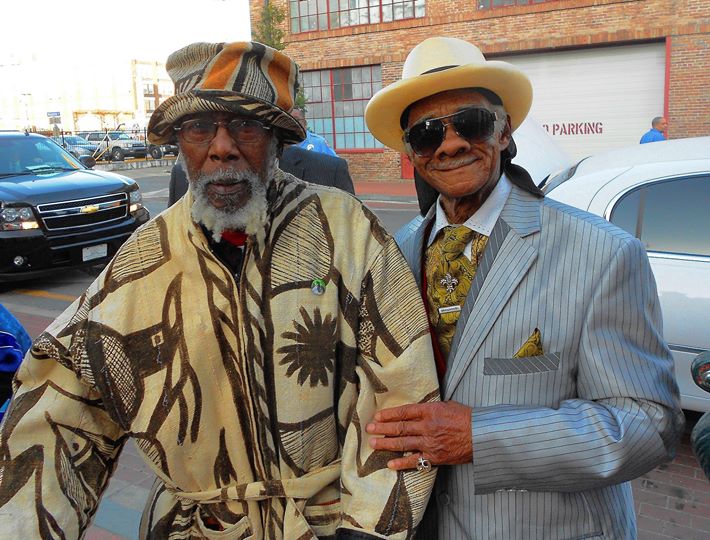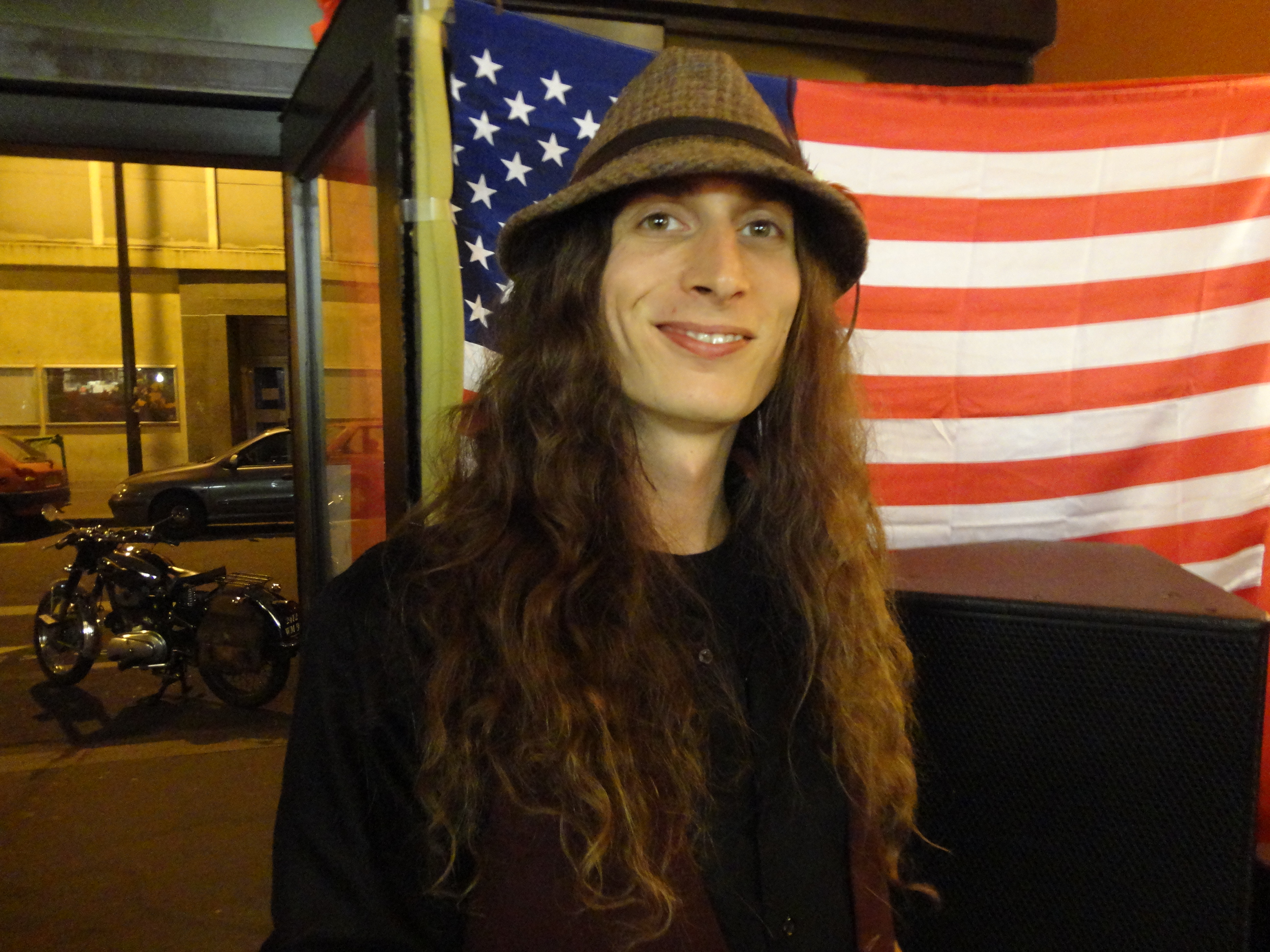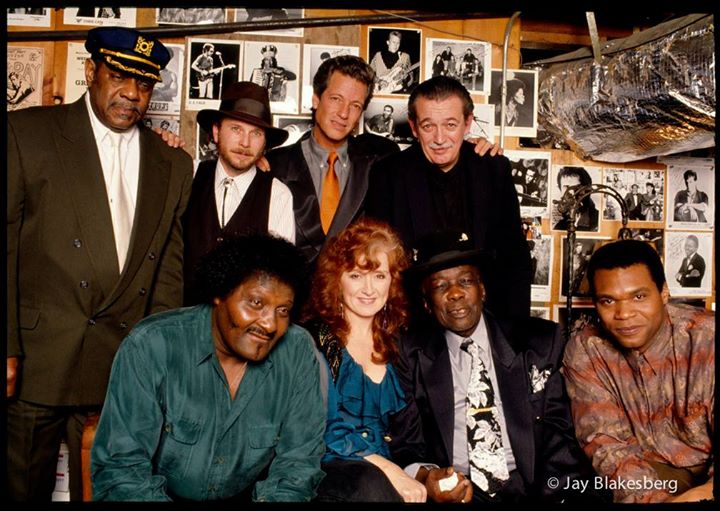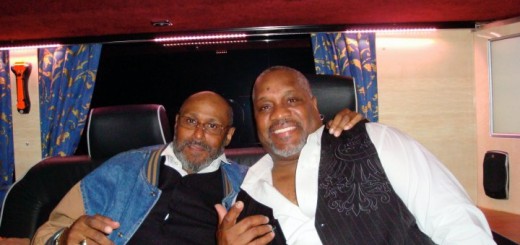Harold Raymond Battiste
Remerciement avec Litle Freddy King
Harold Raymond Battiste, Jr. (October 28, 1931 – June 19, 2015) was an American music composer, arranger, performer and teacher. A native of, and later community leader in, New Orleans, he is best known for his work as an arranger on records by Sam Cooke, Joe Jones, Lee Dorsey, Sonny and Cher, Dr. John, and others.
Biography[edit]
Born in New Orleans, he grew up in the Magnolia Projects. He attended Dillard University, earning a B.S. in music in 1953 and becoming a proficient saxophonist, pianist, and arranger. He formed his first group, with Alvin Batiste (clarinet) and Edward Blackwell (drums) while at university.[1]
His first success as a studio arranger was with Sam Cooke’s “You Send Me“[2] in 1957. In 1961, he initiated the first African American musician-owned record label, All For One, better known as AFO Records.[3] Within a few months, they produced a million-selling hit single, Barbara George’s “I Know (You Don’t Love Me No More)” (AFO#302).[4] The album also released the first album by Ellis Marsalis, The Monkey Puzzle. Battiste’s other professional contributions as a producer and arranger for studio, film, stage and television include Joe Jones‘ “You Talk Too Much”, Lee Dorsey‘s “Ya Ya”, and Sonny and Cher‘s “I Got You Babe“.[2] Battiste introduced audiences to New Orleans artist Mac Rebennack asDr. John, and produced his earliest albums.[3]
Battiste spent thirty years in Los Angeles, including fifteen years with Sonny and Cher, earning six gold records, and acting as musical director on their TV series. He also played piano for Tom Waits‘s songs “Whistlin’ Past The Graveyard” and “A Sweet Little Bullet from a Pretty Blue Gun” on Blue Valentine (1978).
Battiste was also a lecturer at several colleges, and in 1989, he joined Ellis Marsalis, Jr. on the Jazz Studies faculty of theUniversity of New Orleans.[5] He established the AFO Foundation, a non-profit service and educational organization dedicated to recognizing, perpetuating and documenting the heritage of New Orleans music and the people who make the music.[4]
Battiste remained active in the community, and served as a board member of the Congo Square Cultural Collective, the Louisiana State Music Commission, New Orleans Jazz and Heritage Foundation, Louisiana Jazz Federation, the African Cultural Endowment and numerous other cultural organizations. He received the Beau Arts Award, the Mayor’s Arts Award, the Governor’s Arts Lifetime Achievement Award and many others. In 1998, the City of New Orleans proclaimed his birthday as Harold Battiste Day. In 2010 the Historic New Orleans Collection published his autobiography Unfinished Blues.[4]
Battiste died on June 19, 2015, aged 83, after a period of declining health.[6]
References[edit]
- Jump up^ John Sinclair, “Harold Battiste: Prophet with Honor in His Own Land”, JohnSinclair.us. Retrieved 19 June 2015
- ^ Jump up to:a b Smith, Tod (2003-11-02). “EA Brief History of Modern Jazz in New Orleans”. All About Jazz. Retrieved 2010-09-10.
- ^ Jump up to:a b Molly Reid (June 20, 2008). “Tribute scheduled for Harold Battiste Jr.”. The Times-Picayune. Retrieved 6 February 2011.
- ^ Jump up to:a b c Richard Skelly, Biography, Allmusic.com. Retrieved 19 June 2015
- Jump up^ “UNO 2005-2006 CATALOG”. University of New Orleans. Retrieved 2010-09-10.
- Jump up^ Stephen Maloney, “Harold Battiste Passes Away At 83”, Offbeat.com. Retrieved 19 June 2015
External links[edit]
- Harold Battiste’s AFO Foundation
- Harold Battiste at the Internet Movie Database
- David Edwards; Mike Callahan (December 5, 2009). “A.F.O. Album Discography”. Album Discographies. Both Sides Now Publications. Retrieved 6 February2011.
|



